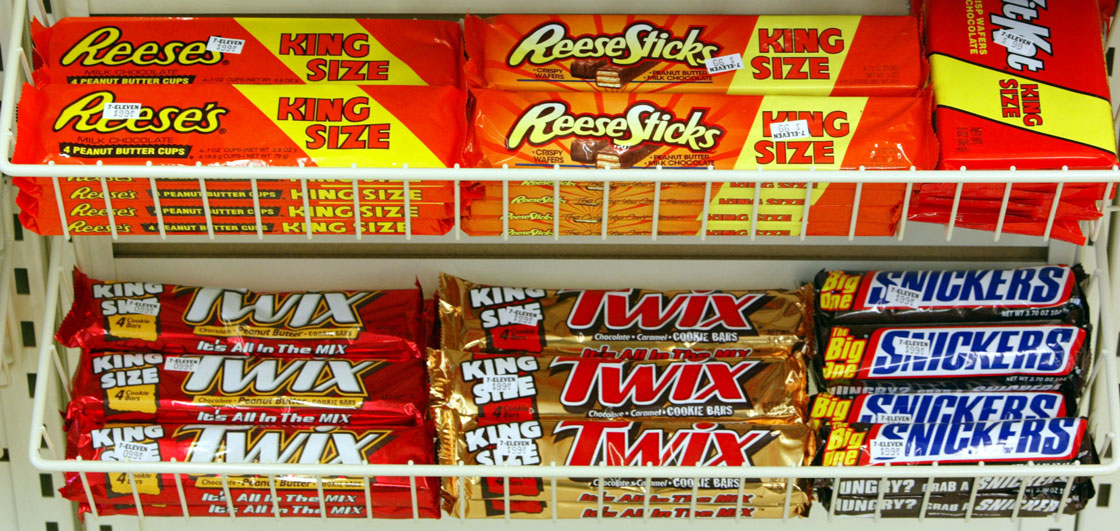Call it a legal death by chocolate, or rather, death by chocolate’s makers, as the country’s biggest confectionery companies put the final nail in the coffin of a class-action lawsuit filed against them by aggrieved chocolate lovers.

For affected buyers of the cocoa-based candy, however, a financial settlement of $23.2 million approved by courts in Ontario, British Columbia and Quebec could offer some satisfaction.
Following a Competition Bureau investigation, Nestle Canada Inc., Mars Canada Inc., Cadbury Adams Canada, Inc. and Hershey Canada Inc. are alleged to have colluded in a plan to artificially boost prices on candy bars such as Kit Kat and other big-name brands by between four and eight per cent over a number of years dating back to the beginning of the last decade up to late 2007.
Each firm denies the allegations but the companies have agreed to the compensation to avoid dragging the long-running suit through litigation, lawyers said.
Notice of the deal was published this week. With a settlement in hand, the law firm behind the legal action has opened it up to claimants to file.
“The litigation will not be moving forward, but for people who want to participate in the settlement, they should file a claim,” Linda Visser, a lawyer for London, Ont.-based Siskinds LLP, said. “And they can do that online.”
The group also has a Twitter account, @ChocClassAction.
Siskinds is one of the law firms that brought an action against Cadbury, Hershey, Nestle and Mars when the investigation was made public in 2008.
Mail notices will go out later this week to commercial purchasers like grocery store chains, convenience store operators and independent candy shop owners – clients of the companies whose addresses were handed over as part of the investigation.
Individual consumers are also being encouraged to file, Visser said.
Consumers who purchased at least $1,000 in chocolate products between Oct. 1, 2005, and Sept. 30, 2007, will be eligible to make a claim for direct monetary compensation.
“If they can substantiate their claim … for some people they might have the incentive and records to do that,” Visser said.
Purchase records are not necessary to make a claim, although consumer claims that are not supported by purchase records are capped at $50.
In Canada, chocolate is big business with even the slightest fluctuation in price amounting to tens of millions of dollars in sales.
Total retail sales reached $2.7 billion in 2012 according to NPD Group, a market research firm. That’s projected to climb to $3 billion by 2017.
Nestlé Canada, Cadbury Adams Canada and Hershey Canada are the market leaders with a combined market share of 42 per cent, according to the food researcher. Nestle’s KitKat and Coffee Crisp are the leading brands, combining for 15 per cent of all candy bar sales last year.
In June, the federal Competition Bureau laid formal criminal charges against Nestle, Mars and distributor ITWAL Ltd., as well as a group of former executives: Nestlé Canada president Robert Leonidas, former Nestlé Canada president of confectionery Sandra Martinez, and ITWAL’s president and CEO David Glenn Stevens.
The proceedings are separate from the civil settlement and are still before the court.
“Price-fixing is a serious criminal offence,” Bureau commissioner John Pecman said at the time the charges were laid last spring, “regardless of whether it is in the chocolate confectionery market or any other industry.”


Comments